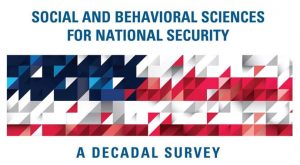Noshir Contractor delivered a keynote titled “Combining Big Data and Conventional Methods” at the Computational Communication Science conference, on February 16th in Hanover, Germany.
SONIC welcomes Cristina Casareale
SONIC welcomes Cristina Casareale, a visiting Ph.D. student in Civil and Environmental Protection at the Università Politecnica delle Marche (Ancona, Italy). During her 6 month visit, Cristina will work with SONIC to study the networks among the key players involved in response to the 2012 Costa Concordia maritime disaster.
SONIC will present at the ICA in May 2018
Two SONIC papers will be presented at the 68th Annual Conference of the International Communication Association in Prague, the Czech Republic on the 24-28 of May 2018.
Tanaka, K., DeChurch, L., & Contractor, N. (2018, May). Origins of omission and commission errors in perceptions of group communication networks.
Schultz, M., DeChurch, L., & Contractor, N. (2018, May). Communicating through space and over time.
Also, Noshir will participate on a panel titled “Professor as entrepreneur: opportunities and risk.” The title of his presentation is Why inhaling digital exhaust is taking organizational performance and the science of communication and technology to new highs.
Diego Gómez-Zará presents at Kellogg Enlace
On January 30th, 2018, the Ph.D. Student Diego Gómez-Zará presented at the Kellogg School of Management at Northwestern University. This talk was organized by the program ENLACE
Diego’s talk was titled “The Role of Social Movements in Twitter: Evidence from the Chilean Student Movement.” He presented the current role of organizations in social media. In the digital era, organizations have become active actors, where they must motivate, interact, and engage with their audiences permanently.
Noshir Contractor attends an SBS Decadal Workshop on Workforce Development
On January 24th, 2018, Noshir chaired a workshop on Workforce Development and Intelligence Analysis, designed to gather information for the Decadal Survey of Social and Behavioral Sciences for Applications to National Security.

SONIC welcomes Kitty Cheung
We are delighted to welcome Kitty Cheung as a post-baccalaureate researcher working with SONIC and ATLAS research groups at Northwestern University. Kitty received her undergrad at Northeastern University where she worked with Professor Brooke Foucault-Welles, a SONIC alum. During her six months with us, Kitty will research how startup teams assemble and how this impacts their future success.
Paper accepted for publication in the journal “Complexity”
A paper co-authored by SONIC’s Yun Huang and Noshir Contractor was accepted for publication in a special issue of the journal Complexity on “Emerging Applications of Complex Networks.”
Sha, Z., Huang, Y., Fu, J.S., Wang, M., Fu, Y., Contractor, N., & Chen, W. (in press). A Network-Based Approach to Modeling and Predicting Product Co-Consideration Relations. Special issue of the journal Complexity on “Emerging Applications of Complex Networks.”
SIOP 2018
ATLAS and SONIC had a 100% acceptance on paper submissions to the upcoming SIOP 2018 Conference, held in Chicago on April 19-21.
Welcome Anirban Mukherjee as a SONIC faculty affiliate
SONIC is pleased to welcome Anirban Mukherjee as a faculty affiliate. Professor Mukherjee is a member of the Faculty at the Lee Kong Chian School of Business (marketing area) at Singapore Management University (SMU) and is a research collaborator with SONIC.
Welcome Alina Lungeanu – Research Assistant Professor
SONIC is pleased to welcome Alina Lungeanu as a Research Assistant Professor in the Department of Communication Studies and affiliated with SONIC and ATLAS. Alina received a Ph.D. in Technology and Social Behavior from Northwestern University in 2016 and was a SONIC member during her graduate studies.
